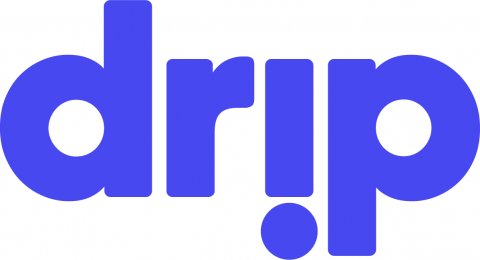
The story of Drip goes back all the way to 2012 when it was launched by Ghostly International, a small record label, as a way to support artists directly. Pirated music was commonplace and it wasn’t entirely clear how a lot of artists were going to make money. Drip was in some ways a solution to that, but also a larger push to cut out middlemen and support artists directly. In this new paradigm, you could bypass labels, studios, producers, etc. It was much like Patreon, which wouldn’t launch for another year.
In 2016, Drip, which was still small at the time (only 100 artists were on it), was acquired by Kickstarter, and it looked like it was going to go toe to toe with Patreon and other subscriber support platforms. Drawing on Kickstarter’s existing user base of millions of customer accounts, it seemed like this was going to really hit the ground running. There were even really great ideas like creator independence:
“…creators will be able to export their data and content, and we’ll even help creators securely transfer subscription and payments information to other subscription platforms. We believe creator independence means not being locked into a platform by design.”
After struggling to find its place, in 2018 it was announced that Drip would be pairing up with another organization, XOXO. The new team was endeavoring to create a financially viable model, which was proving to be a challenge. Even Patreon with its incredible popularity (it should be paying out over $500 million in 2019), is hurting for income. The CEO of Patreon, Jack Conte, has said that in its current form, the business is not sustainable.
And then hardly a year later it was announced that Drip would be shutting down.
We were intent on running a sustainable and independent business. Even if we went the traditional route and raised venture capital, it didn’t appear likely to survive once that funding ran out. We were building this for the community we care about, and many of the artists and creators in our community are already financially insecure and vulnerable. The idea of launching something with so much uncertainty and risk felt irresponsible and unfair.
So with increasingly insurmountable odds, we stopped development earlier this month. We’re working with our friends at Kickstarter to help migrate the remaining Drip beta creators elsewhere. And then we’re returning the remaining seed funding back to Kickstarter.
Its hard to imagine that Kickstarter would forego this opportunity. Surely some of their attention has been focused on the recent union controversy, and perhaps some of that could have been better directed here. There is clearly a huge market for fan supported models like this, and there was lot of shared infrastructure between Kickstarter and a service like Drip, though apparently not enough to sustain itself. As Patreon and Patreon-like services continue to compete and innovate on new funding mechanisms, Kickstarter is without a horse in the race. There is no doubt an effort to bleed out the competitors, and maybe Kickstarter couldn’t negotiate a way to finance this, but it seems like in the long run this will have been a major opportunity lost.